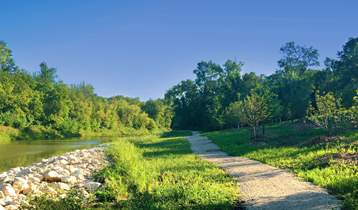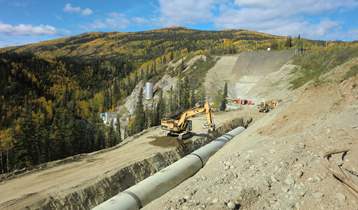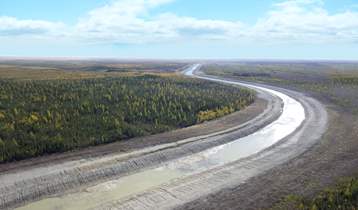Making sure people and places are supported on solid ground is the calling of our geotechnical team. We stabilize riverbanks, design heavy foundations, and ensure bridges and dams stand strong. Using our extensive knowledge and experience combined with innovative technologies, we deliver custom solutions that withstand the test of time.
- Geotechnical Investigations and Site Characterization
- Foundation Design
- Hydrogeological Engineering
- Dam Engineering
- Riverbank Assessment and Stabilization
- Transportation Geotechnics
- Flood Protection
- Permafrost and Cold Regions Engineering
- Instrumentation Installation and Monitoring
- Emergency Response and Disaster Management
Geotechnical Investigations and Site Characterization
Geotechnical investigations form the base of a well-designed project. From small residential to heavy industrial foundations, private riverbank lots to public riverfronts, small irrigation ponds to hydroelectric dams, pedestrian bridges to multi-lane overpasses, our team will gather and analyze the geotechnical information needed to support sound decision-making and planning for your project.
We use a variety of methods and provide a range of services to understand site conditions and characteristics including:
- subsurface investigations
- drilling, soil sampling and soil classification
- in-situ soil testing
- Seismic Cone Penetration Testing with pore pressure measurements (CPTu)
- pressuremeter test
- field vane tests
- standard penetration test (SPT)
- dynamic cone penetration test (DCPT)
- air photo interpretation
- ground reconnaissance surficial geology mapping
- borrow material investigation and evaluations
- groundwater monitoring
- confined and unconfined aquifers characterization (falling head, pump tests, and packer testing)
- hydrogeological investigations and in-situ permeability testing
- geologic hazard identification
- rock mass classification
In addition to in-situ testing, KGS has expertise in specifying detailed laboratory testing programs on select soil samples including routine index/soil classification testing (Atterberg limits, grain size analyses, unconfined compression testing and lab vane tests) and advanced strength and deformation testing (Oedometer, triaxial, direct shear and hydraulic conductivity tests).


